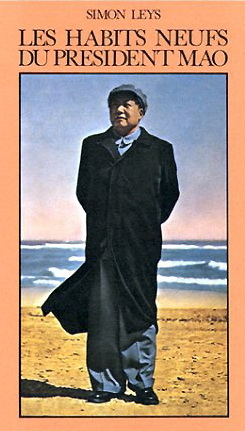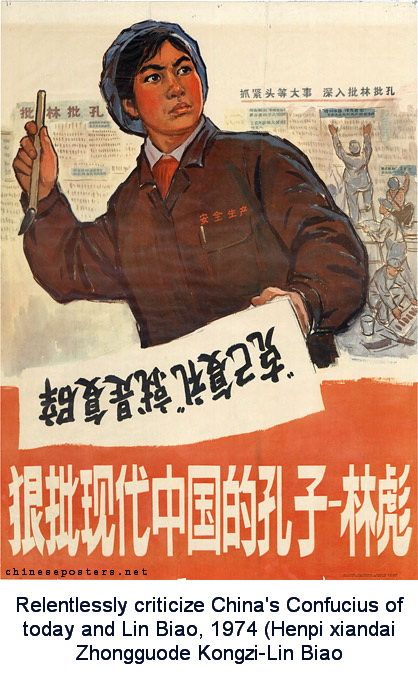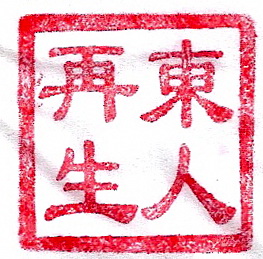I met a missionary who had spent most of his life in China when I was 10 years old; this event triggered my interest in China. It was not easy to get information about China at that time. The only source I had was propaganda from the USSR including very often articles on China. My father received these publications for specific reasons but that is another story.
When I was around 15 my father offered me some books, in French, on Chinese philosophy.
 I learned at that time a few Chinese characters with the help of Nie Sik Hiang, a beautiful Chinese penpal living in Indonesia. There were no social media, like Facebook, the only way to get in touch with people around the world, of my age, was through penpals and I had many of them!
I learned at that time a few Chinese characters with the help of Nie Sik Hiang, a beautiful Chinese penpal living in Indonesia. There were no social media, like Facebook, the only way to get in touch with people around the world, of my age, was through penpals and I had many of them!
It took some time before I had the opportunity to learn elementary Chinese. It was not until 1968 that I could finally, by sheer coincidence, enroll in Chinese courses!
I was, at that time, studying at the University of Louvain (Leuven). Most of the students lived in the city and went home every month or so. Renting a place to live in Leuven was rather expensive and since Leuven was only 25 km from my home, my parents decided that I should travel every day by bus to and from the University.
Apart from getting-up very early, the classes started at 8 in the morning, I was obliged to stay there the whole day even if we had only one hour in the morning and one in the afternoon or even in the evening. I had thus to find things to do to spent the time, between classes, usefully. I could have stayed in cafés as many others did but, besides the fact that I had no money, I felt that this was a waste of time.
It was then that I decided to enroll in language courses. I had already taken Spanish lessons for several years and was now looking for another language. For me, as a student in applied sciences, Russian was the obvious choice. The USSR was then very active in science and especially in space activities. The fact that many of my physics and math books were translated from Russian was also a key factor in my choice.
At the beginning of the academic year I went to the Institute of Living Languages; many students were waiting to enter the class. The professor invited us to enter but even before we took a seat he made the following statement.
“All students who will not be able to follow all classes due to conflicting courses should leave, now!”
I knew that I could not follow all courses, in case of conflicting courses I would give priority to my engineering studies, I decided thus to leave the classroom. I was disappointed but could understand the professor’s point of view. In the corridor just in front of the Russian class students were waiting, apparently for their professor. I asked one of them for whom they were waiting for and she said: “our Chinese professor”. He arrived a few minutes later and I decided to follow the others and entered the classroom. The professor immediately presented a short overview of the basic classic Chinese course for beginners – no statement on attendance.
 The course was very interesting and after a few months, I could also follow courses on classic Chinese based on classic Chinese texts. One day the professor told us that we should have a Chinese name. He knew the story about my Russian class and said that since my name “Oosterlinck” means man from the East and my interest in the Russian language my surname should be 俄 [é] from Éguó 俄國 (Russia). For a given name he needed more time, but he never gave one.
The course was very interesting and after a few months, I could also follow courses on classic Chinese based on classic Chinese texts. One day the professor told us that we should have a Chinese name. He knew the story about my Russian class and said that since my name “Oosterlinck” means man from the East and my interest in the Russian language my surname should be 俄 [é] from Éguó 俄國 (Russia). For a given name he needed more time, but he never gave one.
The Cultural Revolution was already ongoing, at that time, but our professor, who came from Taiwan, refused to talk about it. The only sources on what was going on  in China were newspapers and television. But given the difficulties for foreign journalists to visit China these sources were not always reliable. There was of course also the Little Red Book containing quotations from the books, interviews, and speeches of Mao. I bought it as soon as available in Europe but I was very disappointed by its contents I had hoped that it would have shed some light on the Cultural Revolution but it didn’t.
in China were newspapers and television. But given the difficulties for foreign journalists to visit China these sources were not always reliable. There was of course also the Little Red Book containing quotations from the books, interviews, and speeches of Mao. I bought it as soon as available in Europe but I was very disappointed by its contents I had hoped that it would have shed some light on the Cultural Revolution but it didn’t.
In September 1969 I left for Zaire where it was even more difficult to be informed. We lived in a remote area with only a few hours of electricity per day. Our only sources of information were short-wave radio stations, mail, and sometimes books sent from Europe.
I kept contact with some students attending the Chinese lessons and one of them sent me the book “Les Habits neufs du président Mao”; published in 1971 and written  by a Belgian author; Simon Leys. I had some difficulties in accepting his analysis of the Cultural Revolution. I was certainly biased by the severe critics emanating from the French “Maoists” against Simon Leys. In the absence of sufficient information and the workload as a teacher, China went out of my mind.
by a Belgian author; Simon Leys. I had some difficulties in accepting his analysis of the Cultural Revolution. I was certainly biased by the severe critics emanating from the French “Maoists” against Simon Leys. In the absence of sufficient information and the workload as a teacher, China went out of my mind.
Some years later, back in Europe, I found a job as an engineer with strong ties with law. I never had thought that one day I would study law but eventually, this happened when I enrolled in law at the University of Leiden (The Netherlands). Leiden is one of the oldest universities in the world founded in 1575. I knew from my studies that it was famous for physics with Nobel Prize winners such as Kamerlingh Onnes, Hendrik Antoon Lorentz, and Pieter Zeeman. My first engineering graduation study was: “Study of the Zeeman effect under a pulsed magnetic field”. as chance would have it, I registered in Pieter Zeeman’s university!
I was, however, not aware that the University of Leiden is also renowned for Law. One of the greatest lawyers “Hugo Grotius” studied at the University. I also learned that the University is famous for its Sinological Institute and its impressive Chinese Library. I often went to the Institute to read newspapers, in English, on the changes which were taking place in China.
Over the years I had bought many books on Chinese philosophy in particular on Confucius and Confucianism. It came to me as a surprise that suddenly an anti-Confucius action started in China.
 The “Criticize Lin Biao and Confucius” was indeed one of the interesting topics in Chinese politics those days and when I was obliged to present a study in the frame of courses on political sciences I proposed to my Professor a study on the Political ideas in Confucianism. It took him some time before accepting; he had hoped that with my scientific background, I would write something on Wittgenstein’s logic. He finally accepted on the express condition that in one way or another, I would integrate Wittgenstein’s “philosophy” in my study, which I did!
The “Criticize Lin Biao and Confucius” was indeed one of the interesting topics in Chinese politics those days and when I was obliged to present a study in the frame of courses on political sciences I proposed to my Professor a study on the Political ideas in Confucianism. It took him some time before accepting; he had hoped that with my scientific background, I would write something on Wittgenstein’s logic. He finally accepted on the express condition that in one way or another, I would integrate Wittgenstein’s “philosophy” in my study, which I did!
The “Criticize Lin Biao and Confucius” was a very complicated debate; It started at the initiative of Mao Zedong in 1973 and lasted until the end of the Cultural Revolution, in 1976. It was, at that time, not clear to me why one should criticise Lin Biao, China’s Defense Minister, who died in September 1971 when his plane crashed in Mongolia, and Confucius who lived some 2500 years ago! It seems that Lin Biao was involved in complot against Mao Zedong and through criticizing him all those involved were warned. But why Confucius? The action was, in fact, not against the historical Confucius but against the so-called “Contemporary Confucius”, as mentioned on the poster. The target of the expression “Contemporary Confucius” was nobody else than Zhou En Lai the first Premier of the People’s Republic of China, serving from October 1949 until his death in January 1976.
When I moved to Paris, in 1979, for a new job at the European Space Agency (ESA) I was offered the possibility to study part-time at l’Institut National des Langues et Civilisations Orientales (Inalco also called by the students – Langues O’). I followed courses for some time but the increasing workload became incompatible with the time it took to attend the classes during office hours. This looked as the end of me learning Chinese.
In 1984 I enrolled at the Tenri Institute to learn Japanese. The institute was not far away from ESA and the courses took place, 3 times a week, from noon to 2 pm. After 2 years I got a promotion and had no time anymore for attending courses at Tenri. But this new job allowed me to go often to Japan. I was co-chairing a working group of the annual meeting between Japan and ESA. Every two years this took place in Japan. Japan was on my mind for almost 15 years; China was not totally forgotten but almost!
End 1999 I was offered a new promotion as Head of the Navigation Department. The European Commission which was also participating in the Galileo Programme initiated cooperation with China on Navigation. As Head of ESA’s Navigation department and later as Director I was in charge of the technical and programmatic aspects of the cooperation which meant that I went very often to China. As a result I started again with Chinese.
 When I met my Chinese teacher, for the first time, she asked me my Chinese name, I told her that I had not yet had a Chinese given name. On some seal stones which I received as a gift, surnames were carved on them. The seal stone I liked the most had 東人再生dōngrén (master) zàishēng (re-born) carved on it. I liked 東人 as a reference to my surname Oosterlinck meaning someone coming from the East but I didn’t like 再生, although it meant exactly the same as my given name René (Renatus in Latin born again).
When I met my Chinese teacher, for the first time, she asked me my Chinese name, I told her that I had not yet had a Chinese given name. On some seal stones which I received as a gift, surnames were carved on them. The seal stone I liked the most had 東人再生dōngrén (master) zàishēng (re-born) carved on it. I liked 東人 as a reference to my surname Oosterlinck meaning someone coming from the East but I didn’t like 再生, although it meant exactly the same as my given name René (Renatus in Latin born again).
After a few years, my new Chinese teacher suggested by e-mail the following name 欧德林 for me. She wrote: “your surname would be 欧 and your given name 德林. 欧 is a family name in China and it also means Europe. 德 has a meaning as virtues, beautiful personality, and ethics; 德 makes also a reference to 道德经 (Dao de jing of 老子Lao Zi) which you told me you like very much; 林 (lín) the forest, makes reference to 翰林院 (Hànlín Yuàn, literally “Brush Forest Institute”) founded by Tang Taizong (599-649) as a scientific institute. When we use 翰林院 it means a member of the Imperial Academy and by extension that he is a scientist. I find that 德林 as a given name suits you very well and when you pronounce the sound and the tone it is also pretty to hear.” Obviously, since then I am using 欧德林 as my full Chinese name.

When in Beijing I always spend some time at 孔廟 (kǒng miào – Confucius Temple) and 北京國子監 (Beijing Imperial College) both located next to each other. When I was there in November 2016 exams were taking place at the Imperial College and the brushes reminded me of the official name of the Imperial College 翰林院 literally meaning Forest of Brushes Academy. I tried to sit down on my knees, but it  was not very comfortable; later when the students arrived, they were sitting cross-legged, much better but not possible anymore for me!
was not very comfortable; later when the students arrived, they were sitting cross-legged, much better but not possible anymore for me!
Since 1999 I follow again on almost a daily basis Chinese Contemporary History. In parallel, I continue to read books on Chinese philosophy and Culture. Whenever I travel to China even for business, I always take some time off for learning more about it. This being said since 2010 I am also again interested in Japan following an invitation from the Ritsumeikan University (立命館大学) to lecture occasionally and assist some PhD students.
Some of the pages hereafter refer to what I learned in relation to China.